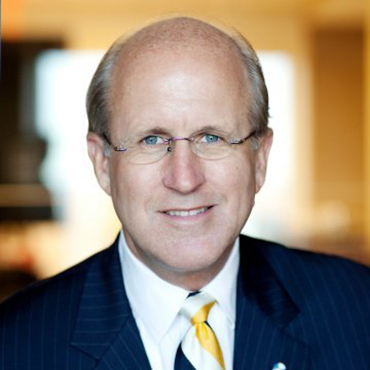Initiative aims to find and fix federal inefficiencies
Legislation would create a Government Transformation Board empowered to impose its will on recalcitrant agencies.

Former GAO head David Walker says watchdogs need more authority to "break through the gridlock."
Oversight agencies adept at uncovering government waste and inefficiencies are often better diagnosticians than surgeons – good at pointing out what’s wrong, less effective at actually fixing the problem.
Now the Government Transformation Initiative, a coalition of corporations and nonprofits seeking to improve government operations, is pushing legislation that would create a federal board with the authority not only to assess operational practices within agencies, but provide actionable solutions to Congress and the president.
The Government Transformation Board would be a nonpartisan, transparent group with the authority to oversee the overhaul of government management and operations, with a narrow focus on efficiency and effectiveness. Bipartisan legislation to create the board has been introduced in both chambers. Were the measure to become law, it would have a profound effect on the government’s $82 billion in annual IT spending.
Last year, the Government Accountability Office documented close to $10 billion in failed IT projects and continues to identify hundreds of millions of dollars in duplicative and ineffective IT systems. In most cases, GAO makes recommendations to correct poor processes, but an agency doesn’t have to follow them. According to former U.S. Comptroller General David Walker, a transformation board could add some bite to the GAO’s bark.
“We need something to break through the gridlock: specific actionable recommendations,” said Walker, speaking at GTI-sponsored summit on federal innovation in Washington.
Walker headed GAO from 1998 to 2008, and noted that 85 percent of recommendations made to the executive branch were followed during that time, leading to a $110 return to taxpayers for every dollar spent by GAO. But the agency does not have the manpower to follow up on every recommendation it makes.
“These bills are the beginning, not an end,” Walker said. “The bill in the House has significant bipartisan support. We’re working to get more support in the Senate and I think we’ll get there. We’re not going to get a grand bargain anytime soon – in my view, maybe for three more years – but at least we could put a process in place to try to achieve economy, efficiency and effectiveness in government.”
Former Virginia GOP Rep. Tom Davis, now director of government relations at Deloitte LLP, said the legislation could be a “legacy bill” for either Sen. Tom Coburn (R-Okla.), ranking member on the Senate Homeland Security and Governmental Affairs Committee, or Rep. Darrell Issa (R-Calif.), the term-limited chairman of the House Oversight and Government Reform Committee.
Davis said IT – a common duplicative investment across government – doesn’t get the attention it deserves from budget appropriators and lawmakers as a backbone for government operations in the 21st century.
“Unfortunately, the current culture is IT, instead of being an investment, is just a line item in the budget,” Davis said. “We have to get through that whole way of thinking. The idea of a board reporting back is probably the only way it’s going to get done. It’s a great idea, and better than a Hail Mary.”
NEXT STORY: TechAmerica hires state/local VP






